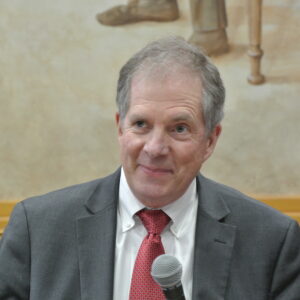The Democratic National Committee may have killed the Iowa caucuses, but Hawkeye State Democrats aren’t going down without a fight. Their problem is that, even if they can somehow battle their way past the DNC, they’ve still got to contend with New Hampshire Secretary of State David Scanlan.
On Wednesday, Iowa Democrats released a new plan for their front-of-the-line election day, with a radical twist: Let Democrats mail in their votes for president rather than physically attend a caucus, and then the party will keep the results secret until later in the campaign season.
“It is still our intention to move forward with the most inclusive Iowa caucus process in history,” Iowa Democratic Party chair Rita Hart said in a Zoom call. “Our new Iowa caucuses will be composed of a mail-in expression of presidential preference and our in-person precinct caucuses.”
The votes won’t be counted during the caucuses — which will be held on the same day as the GOP’s — but will instead be counted at some point later in the primary season. And because, Iowa Democrats claim, this mail-in “expression of preference” is merely a party activity and not an official state-sponsored election event, it doesn’t run afoul of New Hampshire’s “first primary” law.
Not so fast, says Scanlan.
Asked whether an event with mail-in ballots and polling hours crosses the line into “primary” territory, Scanlan told NHJournal, “Sounds like a primary to me.” As a result, the state’s law would take effect and force the Granite State to go a week ahead of the Hawkeye State.
Hart also argued that the balloting is merely a party activity, comparing it to the straw poll Iowa State Fair Straw Poll Republicans used to hold every four years. Scanlan rejected that argument as well.
Instead, Scanlan is watching the GOP-controlled legislature in Des Moines, where a bill has passed the House and is moving toward the Senate requiring party caucuses that are part of a presidential nominating process to be held in person. No mail-in ballots. Iowa Republicans are warning their Democratic counterparts that the threat of New Hampshire leap-frogging the state is very real.
“[This bill] does require in-person voting, but only if the purpose of that caucus is to select delegates to your national convention, which is the trigger and the threshold that New Hampshire sees as us being a primary versus a caucus,” said Rep. Bobby Kaufmann, the GOP sponsor of the bill. “This is my best way to compromise and to give the parties the flexibility to do what they want without allowing either party to endanger Iowa’s first-in-the-nation status.”
Asked to predict whether New Hampshire was likely to hold its primary before or after Iowa, Scanlan said he was in no hurry.
“We’re just going to have to watch and see what they do.”



